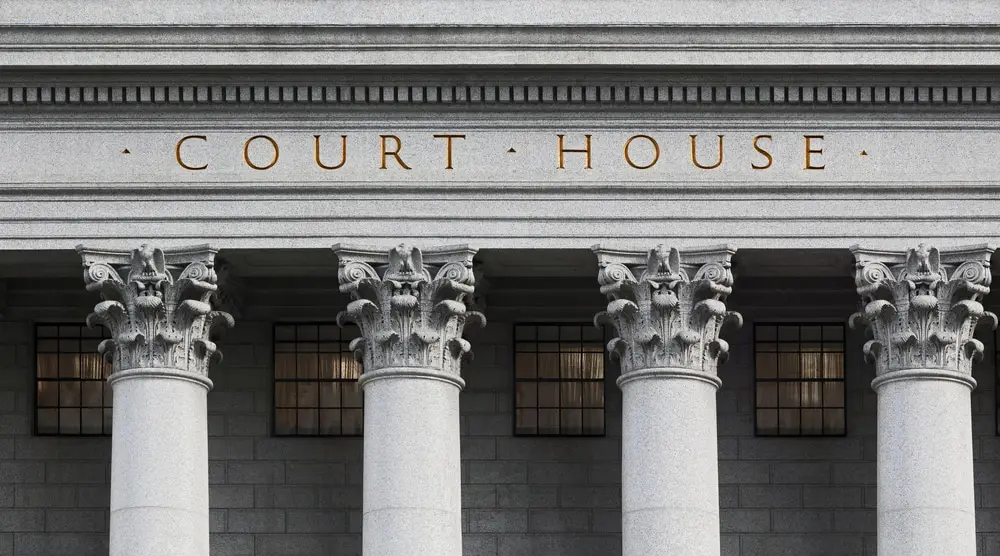All You Need to Know About Probate Bonds
Navigating the estate management process can be intimidating, especially when understanding and obtaining probate bonds. Luckily, this guide is here for you – providing all the necessary information from local regulations concerning “probate bonds near me” to working with a qualified probate lawyer and a reputable surety bond company like SuretyBonds.co This article covers everything related to securing these essential suety bonds all in one place!
Short Summary
- Understanding your area’s specific requirements and bond types regarding probate bonds is essential.
- SuretyBonds.co can underwrite your Probate bonds for protection against potential losses.
- A qualified probate attorney can provide invaluable assistance with navigating the complexities of estate management and filing claims & disputes involving probate bonds.
Understanding Probate Bonds in Your Area

Probate court regulations determine the requirement of probate court bonds, also known as estate bonds. These financial guarantees are vital to protect a deceased person’s estate from any possible losses due to dishonest or improper acts on behalf of an executor or administrator. Probate and estate bonds of various types include both Estate Bonds and Executor Bonds, which ensure that whoever is responsible for administering the will does so in the best interest of those involved. Knowing all legal requirements related to these particular types of estate bonds and executor bonds within your jurisdiction can help guarantee proper management when dealing with somebody’s inheritance after their death.
Probate Court Bond Types
Regarding estate administration, the probate process and bonds are essential for safeguarding a deceased person’s estate and assets. A range of options are available that serve distinct purposes—administrator bonds, personal representative bonds, conservatorship bonding arrangements, and trustee bond/guardian bond/executor bond probates all in place to ensure that those who represent the estate act with its best interests at heart. It’s vital, though, that any such choices consider local regulations on each type of probate process and probate court bond used. Every state can have different requirements regarding how to obtain a probate bond.
Local Probate Bond Requirements
Understanding the exact requirements of local probate courts for bond amounts and any other conditions that may apply is essential to comply with state laws. An excellent resource for such information is an insurance company like State Farm, which can provide helpful guidance on what types of bonds are needed in your jurisdiction regarding probate matters. Bond amounts vary across state laws and locations, so know exactly how much coverage your situation requires, or else potential disputes could arise.
The Process of Obtaining Probate Bonds

The surety bonds necessary for obtaining a probate court bond will vary by state and type of estate bond used, so the first step is to identify them. The applicant must then contact a suitable provider who can assess their risk level before issuing the appropriate amount of administrator surety bonds required. These costs come from estate assets. Thus making it an expense covered by the said estate assets.
To conclude this process successfully, all applicable surety or probate bonds must be valid and will be appropriately acquired for assets belonging to the deceased’s estates to remain secure until they’re transferred according to legal regulations involving such matters.
Louisiana Probate Bond (All)
Probate bonds are a requirement of Louisiana county courts when an executor or administrator is appointed to take care of the estate after someone has passed away. These guarantees that creditors, heirs, and beneficiaries of the deceased someone will be compensated for possible financial losses if either party does not abide by probate laws or the second party fails to honor the conditions outlined by the deceased person in their last will/trust.
To acquire a Louisiana Probate Bond, you must submit paperwork through an approved surety organization registered with LDI. Then pay the corresponding bond premium fee afterward.
Mississippi Probate Administrator Bond
In Mississippi, county courts require probate executor and administrator bonds and administrator bonds for persons in charge of a deceased’s estate. The executor or administrators are responsible for obtaining these bonded guarantees, known as the executor and the probate court bond, administrator bonds and administration bonds, to protect recipients and creditors from any fraud regarding the management of assets belonging to the estate. The Mississippi Probate Administrator Bond guarantees that all mandated laws will be followed by an appointed executor or administrator, with reimbursement guaranteed should losses accrue due to mismanagement or dishonesty within their role.
Mississippi Probate Conservator Bond
When a Mississippi conservator is appointed as the fiduciary of a ward’s estate, they must obtain surety bond protection for it. This type of bond safeguards against any misappropriation or misuse of funds by the conservator. To acquire this probate conservator bond, one must contact an appropriate surety bond provider and submit all necessary documentation. Then, after evaluation, the cost will be calculated according to terms established by that bond company. The guarantor in question assures their guarantee that if something was mishandled financially on behalf of them within their scope capacity – which can extend beyond assets held – the trust placed upon them remains intact with full accountability due to bondsman-conservatorship agreement between both parties involved here: trustee/trustee beneficiary alliance relationship.
Mississippi Probate Conservator Bond
When a Mississippi conservator is officially appointed as the fiduciary of a ward’s estate, they must obtain Mississippi Probate Conservator Bond protection. This type of bond safeguards against any misappropriation or misuse of estate funds made by the conservator. To acquire this probate conservator bond, one must contact an appropriate surety bonds provider and submit all necessary documentation. Then, after evaluation, the cost will be calculated according to terms established by that bond company. The guarantor in question assures their guarantee that if something was mishandled financially on behalf of them within their scope capacity – which can extend beyond assets held – the trust placed upon them remains intact with full accountability due to bondsman-conservatorship agreement between both parties involved here: trustee/trustee beneficiary alliance relationship.
Mississippi Probate Executor Bond
A Mississippi Probate Executor Bond is a surety agreement that county courts demand of those appointed to manage the deceased’s estate. This particular type of security seeks to protect any assets held in the said estate by the named executor, the bonds’ best interest, and ensure there are no fraudulent activities or mishandling of property on behalf of the named executor.
To obtain an appropriate bond, applicants must complete an application form through a licensed provider and supply the necessary documents and their premium payment. The cost associated with post bonds can vary depending upon factors such as the estate’s size, the chosen executor’s credit score, and regulations set out by individual providers delivering these bonds/agreements.
Mississippi Probate Guardian Bond
A Mississippi probate guardian bond is a type of financial surety bond that guarantees to the court and beneficiaries of an estate that those managing it will meet all legal requirements. Obtaining one requires submitting paperwork, providing documents as needed, and paying related costs, which can depend on the size of the particular bond being requested and the credit score of using a particular provider. The remaining assets being held by such guardians are safeguarded under this type of protective arrangement set up between them, their appointed surety, and the insurance company themselves, and ultimately sanctioned by order from presiding authorities within the state’s jurisdiction.
Mississippi Probate Personal Representative Bond
A Mississippi Probate Personal Representative Bond is a surety bond that county courts in Mississippi require of heirs, an executor or persons appointed to administer the deceased’s estate. This type of bond aims to secure beneficiaries and creditors from any misconduct or misappropriation by heirs, an executor or administrator/administrator within the value limit equal to that stipulated for said individual’s estate.
To obtain such a Mississippi probate personal representative bond, one must contact a reliable surety provider with all pertinent details about the deceased person’s assets and executor, their specific situation about assets belonging to them, and the decedent’s estate, as well as information on both administrators and executors valid, will be involved in this process.
South Carolina Probate Administrators Bond
A South Carolina Probate Administrators Bond surety bond, is a court bond required in South Carolina for probate administrators to obtain, guarantees that the executor or administrator will distribute and utilize the estate’s assets and properties in compliance with legal regulations. To acquire this type of security measure, applicants must submit an application accompanied by documentation and pay the necessary premium set by the number of assets within an estate and their credit history and credit score evaluated by any particular surety provider or underwriter.
South Carolina Probate Guardian Bond
To issue a South Carolina Probate Guardian Bond, you must contact a Bond provider and provide the required documents. After receiving your application, the provider will estimate how much this type of bond would cost. This surety is needed by law when an individual appointed as a probate guardian has been granted authority from the probate court to handle finances or other matters on behalf of another person with impaired capacity. The termination of said fidelity guarantee could only happen after all related affairs have been successfully settled.
Tennessee Probate Administrator Bond
In Tennessee, county courts require the use of both named executor and administrator bonds for those appointed to manage a decedent’s estate. The bond amount should not be lower than or double the value of the said asset. This Tennessee Probate Administrator Bond ensures that any named executor or appointed individual will fulfill their responsibilities according to law. If there is evidence of fraud or mismanagement about the management of trust funds, these are indemnified by such security measures as bonds, for example.
Florida Administrator Bond – Probate
In Florida, county courts require a Probate Bond, also known as a Florida Administrator Bond – Probate Bond. It covers the appointed executor or administrator in managing the assets and estate of a deceased individual and provides financial protection to anyone impacted by their negligence. The bond amount depends on the estate’s value, and one can obtain it by completing paperwork and paying the premium cost through a specialized provider in administrator bonds and related securities.
South Carolina Fiduciary Bonds
In South Carolina, an executor or administrator responsible for managing assets on behalf of others requires a fiduciary bond or surety bond. The South Carolina Fiduciary Bond (Other Than Probate) ensures responsible and faithful handling of estate matters. The requirements for a fiduciary bond vary based on the remaining assets and coverage needed. The applicant must submit relevant information for evaluation before the document is issued, protecting both parties.
Probate Bonds Application Process

Applying probate bonds work involves furnishing personal and estate information, for which a qualified probate attorney may be consulted. With their help in providing directions on all essential paperwork to ensure its completeness, this could make it easier to go through the complexities of applying for such probate bond work. Besides helping with guidance and counsel related to filing requirements needed when obtaining these financial instruments, an expert attorney can guarantee that everything is correctly completed before submitting them.
Cost Factors
The probate bond cost can vary depending on specific criteria such as the value, credit history and score, and whether or not an attorney is involved. Based on one’s financial history usually ranges from 0.5% to 0.8% of the total amount requested in a probate bond act. Individuals with better scores tend to pay less for premiums associated with this type of coverage. Involving an attorney during the process will also influence prices since they guide paperwork submission and help ensure all documents are adequately fulfilled before authorities approve bonds related to the probate bond acts.
Approval and Issuance

Working with a reliable surety bond company is also essential when filing for a probate bond. The court must approve the court bond and determine if payment is required. In such cases, the executor and administrator bond company or executor and administrator bonds or the bond company would then be responsible for settling any claims. The applicant’s qualifications are evaluated by the surety and the risk when approving or issuing these types of bonds; organizing all documents can help ease this process significantly.
Probate Bonds Claims and Disputes
In probate court, an executor or administrator often posts a bond to guarantee that they will fulfill their duties. Should there be any disputes over post bonds or duties or claims against the executor/administrator for the failure of such duties or tasks, these can be filed and argued before the probate court. Evidence must also be presented as proof of misconduct on behalf of either party to resolve such matters successfully.
Filing a Probate Bond Claim
In the probate court, evidence may be presented to file a claim against a probate bond. This claim could include documents or testimony that show that an executor’s or administrator’s fiduciary duties have not been acted on correctly according to legal obligations. Should it become apparent from the hearing that reimbursement of said bonds is necessary, those responsible, such as fiduciaries and executors, must cover any payments associated with this judgment claim.
Resolving Probate Bond Disputes
Probate bond disputes may necessitate the involvement of a legal professional and negotiations between parties. Methods like mediation and voluntary or mandatory settlement meetings might be beneficial in trying to settle such disagreements. If these don’t suffice, litigating with a private judge’s help via probate court of proceedings can also provide a resolution. Family members or anyone involved in this situation must collaborate with an attorney specializing in probate court bond law as they offer assistance throughout every dispute-handling and legal process.
Summary
To sum up, it is essential to comprehend and acquire probate and estate bonds for effective estate plan administration. One should know the particular regulations in their area, find a reliable provider of estate bond services, and work with an expert lawyer specializing in these matters to avoid any financial losses due to deceitful or imprudent behavior. By utilizing this extensive guide, you are better prepared to understand all aspects of dealing with probate and estate bonds, thus ensuring that your clients receive the best outcome from such transactions. Knowledge about different types of bonded protection will keep both parties safe from harm when managing estates since they will protect against dishonest or improper acts while also offering legal redress if there are financial losses suffered by the involved party/ies.
Frequently Asked Questions
What is a probate bond?
A probate administrator or bond acts to guarantee that the duties of an appointed administrator or executor appointed administrator are carried out correctly and truthfully while safeguarding any assets bequeathed by a deceased individual or those under guardianship. This particular type of bond is used in estate management processes to protect all concerned and other parties involved in the said process from harm.
A probate bond is a type of surety bond required by a court to ensure that the executor or administrator of an estate will carry out their duties responsibly and ethically. The bond guarantees that the executor or administrator will:
- Administer the estate according to the terms of the will or the laws of intestacy.
- Protect the estate’s assets from loss or misappropriation.
- Account for all of the estate’s assets to the beneficiaries.
Why are probate bonds required?
Probate bonds are required to protect the beneficiaries of an estate from financial losses that may occur if the executor or administrator of the estate misbehaves. The bond also helps ensure that the executor or administrator will carry out their duties fairly and impartially.
How much does a probate bond cost?
The cost of a probate bond varies depending on the amount of the probate bond cost and the surety bond company. The amount needed for a probate bond is typically based on the size of the estate.
How do I get a probate bond?
You can get a probate bond from a surety company. To get a probate bond work out, you must provide the surety bond company with information about the estate, including the estate’s size and the beneficiaries’ names.
What are the different types of probate bonds?
There are two main types of probate bonds:
- Executor bonds: These bonds are required for individuals appointed by the court to be the executor of an estate.
- Administrator bonds: These bonds are required for individuals appointed by the court to be the administrator of an estate when there is no will.
What is a conservator bond?
A conservator bond is a type of surety bond that a court requires to ensure that the conservator of a deceased person’s assets will carry out their duties responsibly and ethically. The bond guarantees that the conservator will:
- Administer the conservatee’s assets according to the court’s orders.
- Protect the conservatee’s assets from loss or misappropriation.
- Account for all of the conservatee’s assets to the court
Why are conservator bonds required?
Conservator bonds are required to protect the conservatee’s assets from financial losses that may occur if the conservator misbehaves. The bond also helps ensure that the conservator will carry out their duties fairly and impartially.
How much does a conservator bond cost?
The cost of a conservator bond varies depending on the amount of the bond and the surety company. The bond amount is typically based on the value of the conservatee’s assets.
What is an executor bond?
An executor bond is a type of surety bond required by a court to ensure that the executor of an estate will carry out their duties responsibly and ethically. The bond guarantees that the executor will:
- Administer the estate according to the terms of the will or the laws of intestacy.
- Protect the estate’s assets from loss or misappropriation.
- Account for all of the estate’s assets to the beneficiaries.
Who needs an executor bond?
In most cases, the court requires an executor bond when an individual is appointed executor of an estate. However, there are some cases where an executor bond may not be required. For example, an executor bond may not be required if the estate is small or there are no minors or incapacitated beneficiaries.
How much does an executor bond cost?
The cost of an executor bond varies depending on the amount of the bond and the surety company. The bond amount is typically based on the size of the estate. For example, an executor bond for an estate worth $100,000 may cost around $1,000.
How do I get an executor bond?
You can get an executor bond from a surety company. To get a bond, you must provide the surety company with information about the estate, including the estate’s size and the beneficiaries’ names. You must also provide the surety company with your personal information, such as your driver’s license number and credit history report.
What happens if I don’t get an executor bond?
If you do not get an executor bond, you may not be able to obtain a court appointment as a personal representative of an executor. In addition, if the executor of the estate misbehaves, the estate’s beneficiaries may be able to sue the executor or administrator bond you personally for losses.
What is the purpose of a bonding company?
A bonding company’s main objective is to offer surety bonds, which act as a type of security ensuring that commitments made by three parties to other parties are fulfilled and protecting their clients from potential monetary losses resulting from someone else’s dishonesty or failure to perform.


